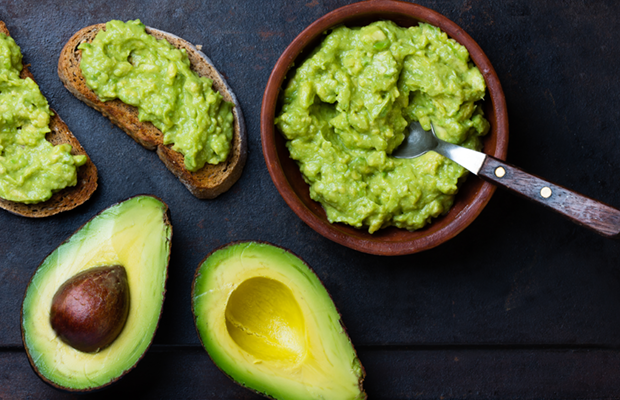
Is avocado good for the heart?
Newspaper reports of a recent study have said that eating an avocado a week cuts the risk of coronary heart disease by up to a fifth. We look behind the headlines.


1st April 2022
Eating two servings of avocado each week (one avocado) can cut the risk of developing coronary heart disease by 21 per cent, according to research published in the Journal of the American Heart Association.
A healthy diet can reduce your risk of developing coronary heart disease and stroke. Researchers from Harvard University wanted to find out if a diet which regularly included avocados affected the long-term risk of developing heart disease or stroke.
They studied 103,926 men and women who were free of heart disease, stroke, or cancer at the start of the research. They asked them to report on their diets with a food questionnaire at the start, and then every four years.
Want to get fit and healthy?
Sign up to our fortnightly Heart Matters newsletter to receive healthy recipes, new activity ideas, and expert tips for managing your health. Joining is free and takes two minutes.
I’d like to sign upThey followed the participants for 30 years, from 1986-2016. During this time they recorded 9,185 heart attacks and 5,290 strokes.
Looking at the diet and health outcomes of the whole group, the researchers concluded that those who ate avocados regularly had a 21 per cent lower risk of developing coronary heart disease, compared to those who did not eat avocados.
The study also said that replacing half a serving a day of other foods containing fat (including butter, margarine, mayonnaise, egg, yogurt, cheese or processed meats) with the equivalent amount of avocado could lead to a lower risk of coronary heart disease (between 16 and 22 per cent lower). But they found no heart health benefit in replacing olive oil, vegetable oil or nuts with avocado. They didn’t find any link between eating avocados and lower risk of stroke.
How good was the research?
A strength of the study was that it included a large number of people and that it followed them over a long period (30 years).
The researchers also adjusted for other factors that could affect their results, such as age, underlying health conditions, including other aspects of diet (and they noted that the avocado-eaters in general had a better quality of diet). Still, it is always difficult to be sure they have fully taken into account all factors that could have affected the results.
A weakness of the study is that it relied on self-reported information from those taking part, which might make it less accurate. Researchers asked people to fill in a food questionnaire every four years, which meant participants had to remember what they had eaten over a long period of time. This could lead to inaccurate responses. The amount of avocado people ate over four years is also likely to have varied.
While the study included a large number of participants, aged 30 to 75, they were all working as healthcare professionals. So they may not be completely representative of the general population.
The BHF verdict
Victoria Taylor, Senior Dietitian at the British Heart Foundation, said: "Avocados are high in unsaturated fat (specifically, monounsaturated fat) as well as fibre and other vitamins and minerals. We already know that swapping foods with saturated fat, like cheese, butter or fatty meats, for unsaturated fats, like avocado, oily fish, nuts, seeds, olive oil or rapeseed oil, can help maintain healthy cholesterol levels.
“Because they are high in fat, avocados are higher in calories than other fruits and vegetables, so if you’re watching your weight, keep an eye on your portion size.
“Beyond this particular study, there’s lots of evidence that it’s more important to think about your whole diet rather than focusing on one particular food. To keep your heart healthy, you should focus on eating plenty of vegetables, fruit, fish, pulses and wholegrains, and cutting down on foods high in salt, sugar and saturated fat like cake, biscuits and sweets."
How good was the media coverage?
The story was covered widely, mostly in a fairly accurate way. But the Telegraph ran a headline which said: “Want to cut your risk of heart disease? Eat just one avocado a week” followed by this first sentence: “Eating one avocado a week cuts the risk of heart disease by a fifth, according to Harvard scientists.” This kind of study is observational, so it can only find an association, not prove that eating avocados will reduce risk, and certainly not for any one individual (as it is based on averages across a large number of people).
The Independent coverage included context about sustainability concerns and the carbon footprint of avocados.
What to read next...
Are avocados high in fat?




